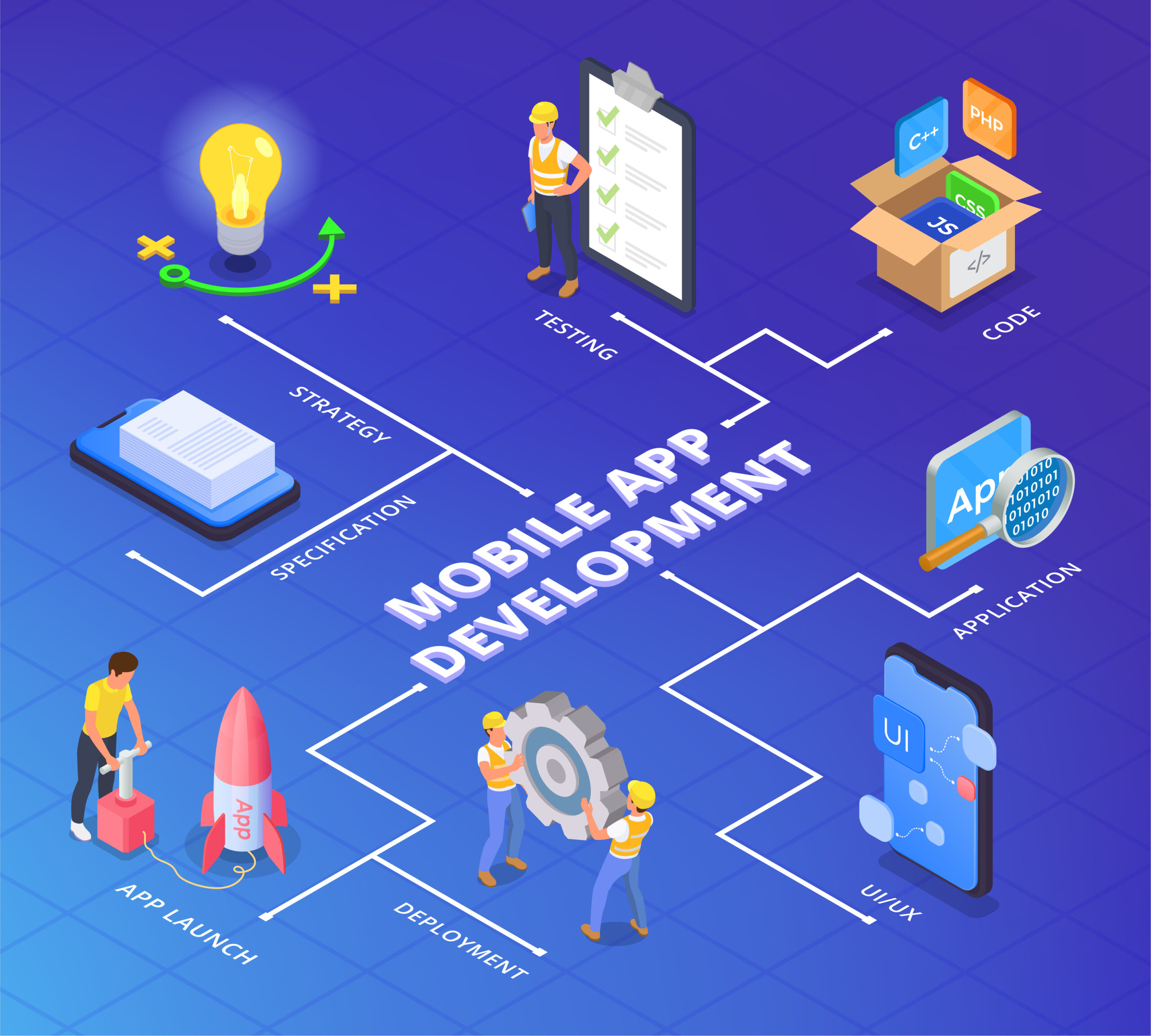
Assembling a proficient team for mobile application development is important for ensuring the success and quality of the product.
Key Considerations When Building a Mobile App Development Team:
Project Requirements:
Before assembling the team, it’s essential to have a clear understanding of the project requirements, including the app’s purpose, features, target audience, platforms, and timeline. This helps in determining the skill sets and expertise needed for the team members.
Identify Required Skills:
Assess the technical skills required for mobile app development, including proficiency in programming languages (such as Swift for iOS or Kotlin for Android), knowledge of mobile app frameworks, UI/UX design expertise, experience with backend development, and familiarity with app testing and deployment processes.
Determine Team Size and Composition:
Evaluate the scope and complexity of the project to determine the optimal team size and composition. A typical mobile app development team may include roles such as project manager, UI/UX designer, mobile app developer (iOS and/or Android), backend developer, quality assurance engineer, and possibly a DevOps engineer for deployment and maintenance tasks.
Experience and Expertise:
Look for team members with relevant experience and expertise in mobile app development. Consider factors such as previous projects completed, industry experience, knowledge of emerging technologies, and participation in relevant training or certifications.
Foster Collaboration and Communication:
Building a successful mobile app requires effective collaboration and communication among team members. Choose individuals who are not only skilled in their respective roles but also adept at working collaboratively, sharing ideas, providing constructive feedback, and resolving conflicts professionally.
Remote Work Capabilities:
In today’s remote-friendly work environment, consider whether team members need to work remotely or can be located in the same physical space. Evaluate communication tools, project management platforms, and collaboration techniques to facilitate seamless remote work if needed.
Training and Development:
Continuous learning and skill development are essential in the rapidly evolving field of mobile app development. Invest in training and development programs to enhance the skills of team members, stay updated with the latest industry trends and technologies, and growth within the team.

Conclusion:
By assembling a well-balanced team of skilled individuals, promoting efficient communication and teamwork, and prioritizing ongoing learning and growth, organizations can cultivate top-performing teams capable of creating mobile applications that successfully cater to user needs and expectations.
